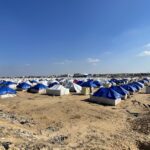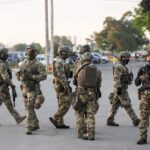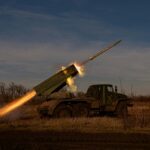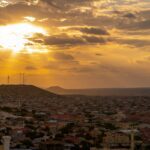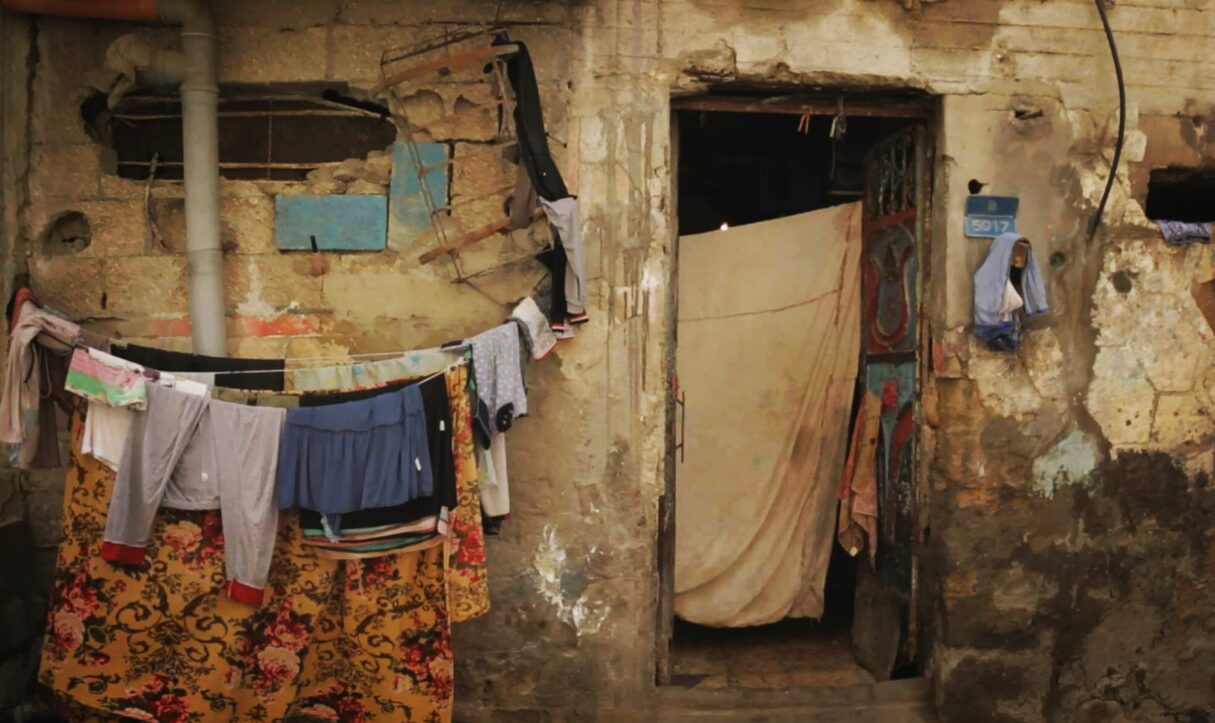My mother is in her forties, a high school computer teacher with five children of her own. Before Israel launched its latest war on the Gaza Strip on Oct. 7, 2023, she had a rhythm: off to school in the morning, home by noon, and sometimes, in the evening, we’d walk together to shake off the day. She loved planning meals, and when she was too tired to cook, we ordered delivery — just like working mothers everywhere.
Throughout the last year and ten months, Palestinians in Gaza have endured a relentless genocide — no pause, no protection, no rights upheld. Israel has spared no one: not children, not elders, not mothers. Everyone here wakes up to hardship, but being a mother here is the hardest test of all. It means rising each day not to care for your family in peace, but to fight for their survival. Here, you are not a heroic symbol as some foreign media might frame it — you are a woman trapped by war, making impossible choices with whatever remains. That’s what my mother does.
When the war came, the school my mother taught in for nearly 20 years became a shelter for the displaced. Her job vanished. The routine vanished. She became a full-time war survivor. Every morning, for over 600 days now, she wakes up not to teach, but to wonder: What will I cook today, when there’s barely anything to cook?
My mother, like thousands of women here, invented “false meals” — that’s what we call them. Lentils became the hero: she ground them into powder to make falafel, stirred them into spice mixes like duqqa, a traditional Gaza spice mix used to flavor many dishes, and even used lentil flour to bake a bitter, unfamiliar bread. It fills the stomach but not the soul.
And now, even lentils — the last refuge of the hungry — cost $35 a kilo.
The food itself is only half the battle. With cooking gas gone, she spends hours crouched over firewood, smoke darkening her fingers and stinging her eyes. She coughs more now. Her energy fades. What used to take 30 minutes takes hours — and costs her health, her breath, her softness.
I see her now, and she is not the same. I am not the same. This war has turned us into people we no longer recognize — people clawing to survive, even the air around us is besieged. Watching my mother endure this war has made one truth painfully clear: Motherhood in Gaza is not just a role — it’s a daily act of survival. How can young women, becoming mothers for the first time, make that journey under genocide?
They go through pregnancy and childbirth in conditions that are physically dangerous and psychologically unbearable. According to international reports, nearly 50,000 pregnant and nursing women in Gaza have gone days without proper food.
My father, a pediatrician and neonatologist, has seen a surge in premature births and miscarriages. The psychological trauma and malnutrition are weakening labor, reducing oxygen to newborns, and in some cases, causing brain and lung damage, or kidney failure.
“This war has turned us into people we no longer recognize — people clawing to survive, even the air around us is besieged.”
Mothers, too, are suffering. Their bodies are too weak to produce enough milk. With no vitamins, no nutrition, and no rest, many are forced to search for infant formula — which is nearly impossible to find. When it is found, a single can costs $130.
The Gaza government’s media office recently warned that if baby formula is not allowed in immediately, more 100,000 children could die within days.
And it’s not just formula. Even diapers have disappeared from the shelves. Mothers are cutting their own clothes into strips of fabric to use as makeshift diapers, an alternative that can cause painful rashes and infections.
Some mothers, my father tells me, try to stretch what little formula they have by mixing it with sesame oil or herbal liquids — desperate solutions that pose real medical risks, especially for premature babies.
How can a mother, who once dreamed of a crib full of toys and soft blankets, now be expected to cradle her baby in a warzone? How does a woman survive two wars at once — one outside her home, and another within, as she watches her child cry for food she cannot give?
This war has spared no mother — not by age, not by strength. Every woman, young or old, has been forced into a brutal test of endurance.
My grandmother, in her sixties, is among Gaza’s elder mothers. Even her age couldn’t shield her from the cruelty. In the first days of the war, two of her brothers were killed along with several members of their families. Then, in January, the Israeli army turned her home into a military outpost — and bombed it.
That house wasn’t just a building. It was her life’s work. The place where her children and grandchildren gathered. Where she cooked for us, celebrated our birthdays, and danced with us at weddings. That home was memory, safety, love.
Now, she lives in a cramped, suffocating space with no electricity and no privacy. The heat is unbearable. Her body aches — constant pain in her back and neck — and the medications she needs have long since disappeared. All she has left are photos of the dead, and memories buried beneath the rubble.
How is a woman meant to survive this much grief at an age when she should be resting? How can she sleep on a concrete floor and wake each day to the ghosts of her past life? This was supposed to be her time of peace. Instead, it has become another battlefield. And how can a mother become both mother and father at once — her war expanding beyond the walls of her home?
On July 24, Israeli forces allowed women to gather at aid distribution points run by the Gaza Humanitarian Foundation (GHF), with support from the United States. Most of the women who went were widowed mothers, holding onto one fragile hope: to bring back something — anything — to feed their children. But instead of aid, they were met with tear gas and live fire.
One of them — a mother — was shot and killed. Her children had waited for her to come home with a sack of flour. Instead, she came home carried on the shoulders of strangers. Who will raise her children now? How does life continue for a child without a mother, especially in wartime? The women wept — from grief, from humiliation.
In our culture, mothers are sacred. In Islam, we say, “Heaven lies beneath a mother’s feet.” But those feet are being crushed and the world remains silent.
This is not random violence. This is a systematic war against Palestinian mothers of all ages — young mothers, elderly mothers, widows, and those still holding their children close — waged with no regard for women’s rights, no respect for motherhood, and no real action from the institutions that claim to defend women. If you believe in justice, in humanity, in the right to a dignified life — how could you look away?
Every day, I watch my mother age too quickly. Her hands are stained from lighting fires; her skin has lost its glow, and her eyes their light. My grandmother suffers in silence, her pain too deep to voice. I cannot look away from the mothers who gave their lives for a bag of flour.


